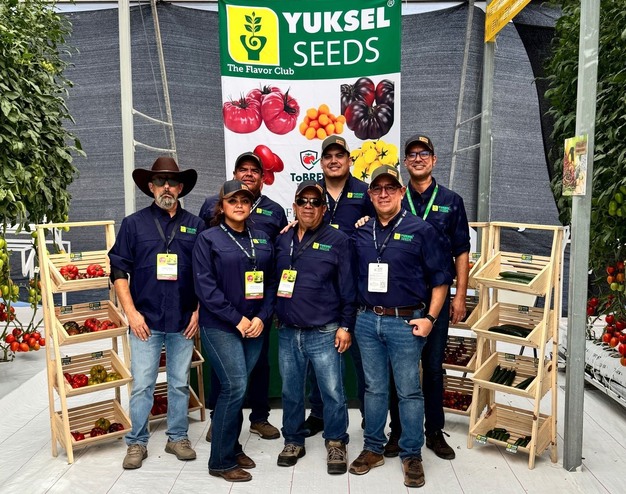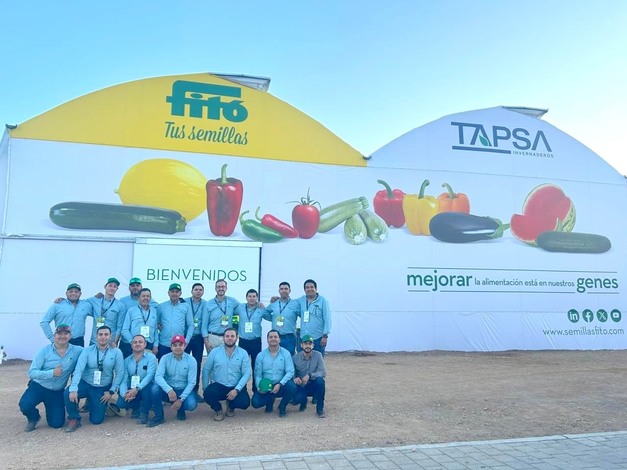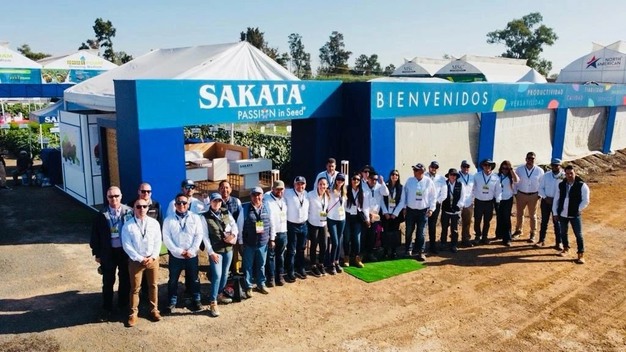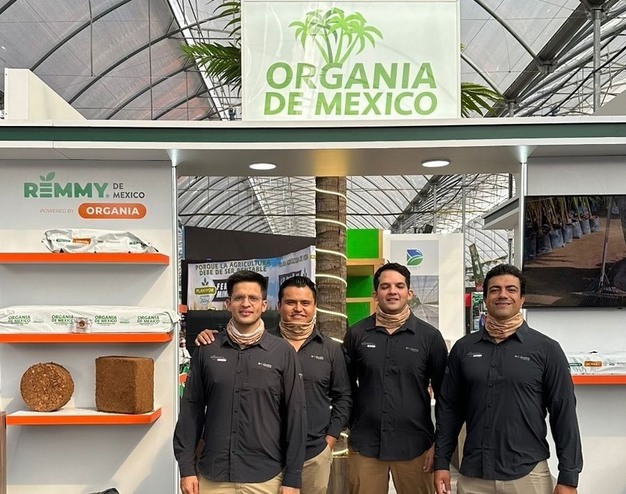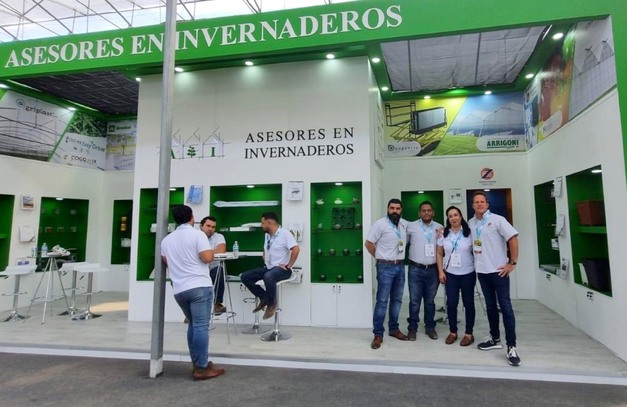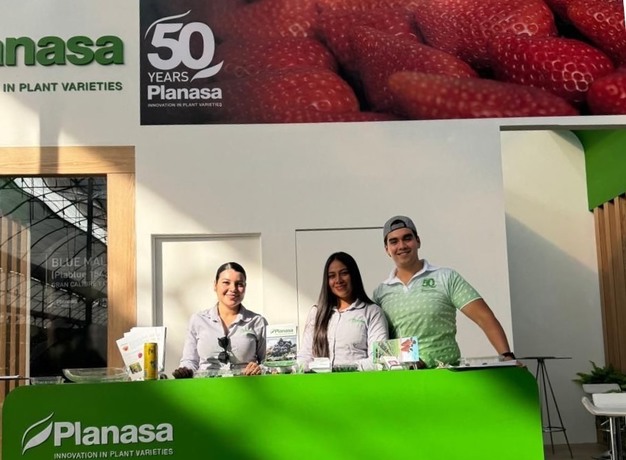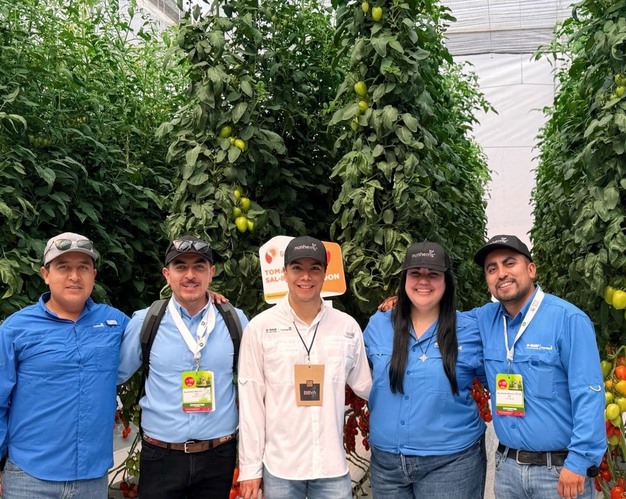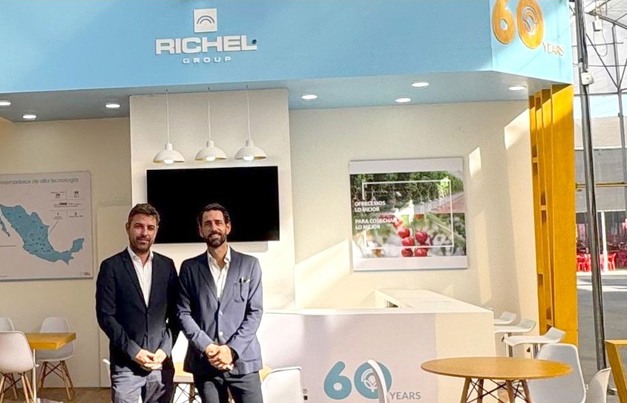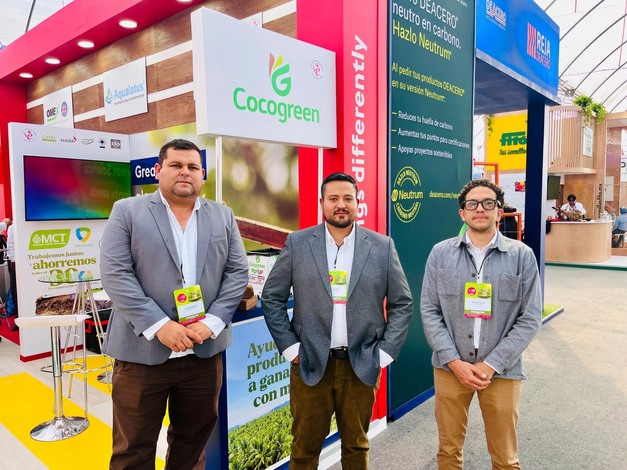Del Surco al Plato - or, from the furrow to the plate, from farm to table. That was the slogan under which the Expo Agroalimentaria took place last week in Guanajuato, Mexico. The trade show unites over 750 companies from 52 countries and is an agricultural fair by heart, but has a significant portion of greenhouse suppliers being present.
The Mexican greenhouse market has experienced remarkable growth over the past decade, largely driven by the export of fresh produce to the United States. This year, droughts and hurricanes severely impacted open-field production, prompting an even greater emphasis on protected cultivation. Despite this, the pace of growth in the sector has slowed due to reduced funding availability, compounded by ongoing political uncertainties.
The trade show coincided with the recent re-election of Donald Trump as U.S. president, which has introduced new concerns in the Mexican market. Earlier this month, the governor of San Luis Potosí voiced worries about potential tariffs on exports to the U.S. "Santa Rita greenhouses could disappear," he warned. "The issue of tariffs is concerning for many reasons. For instance, we are just reactivating the Santa Rita greenhouses, and if a 25% tariff is imposed, these greenhouses will not survive." He added that although these greenhouses represent only a small part of the economy, they are state-owned and export their entire vegetable production to the U.S., making them especially vulnerable to trade disruptions.
Important in this light is the renewal of the USMCA, or the T-Mec, or the CUSMA - all different names for the same agreement, referring to the trade deal that replaced NAFTA on July 1, 2020, and guarantees tariff-free trade for agricultural products between the U.S., Canada, and Mexico. Although the agreement's initial term extends to 2036, domestic consultations are underway in preparation for the scheduled 2026 joint review. At that point, the three nations will assess the treaty and decide whether to renew it for an additional 16 years. If renewal is not confirmed by 2026, the agreement could lapse in 2036.
The T-MEC is crucial for maintaining the flow of greenhouse-grown exports such as tomatoes, peppers, and cucumbers. While Trump originally signed the agreement, he recently expressed intentions to invoke its renegotiation clause. "Upon taking office, I will formally notify Mexico and Canada of my intention to invoke the six-year renegotiation provision of the USMCA that I put in," Trump announced during a speech at the Detroit Economic Club last month, signaling potential changes ahead.
Meet with clients
But - before we dive into politics, let's dive into the Expo Agroalimentaria. In addition to the tradeshow itself, 23 greenhouses offer breeders the opportunity to show their varieties, and suppliers to present their technical novelties, substrates, or other relevant products.
"The annual expo of Guanajuato is one of our biggest, if not the biggest, opportunity to meet all our clients from all the surrounding states to have 1 to 1 meetings", said Miguel Ayuso from MSC. "It is an expo which no greenhouse-related company can avoid, all the clients and providers take it as an annual meeting point to discuss the future of the sector, it is a place where companies present their new products and their most recent experiences. Also for us, MSC, its a key date in the year as we have a manufacturing location in Guadalajara, Mexico."
"We were proud to participate in this leading event. Inspiring discussions were held with experts and partners, innovative solutions were explored, and valuable insights were gained to further strengthen the agricultural sector in Mexico", the GreenV Mexico team added.
Please find some snapshots of the show below:
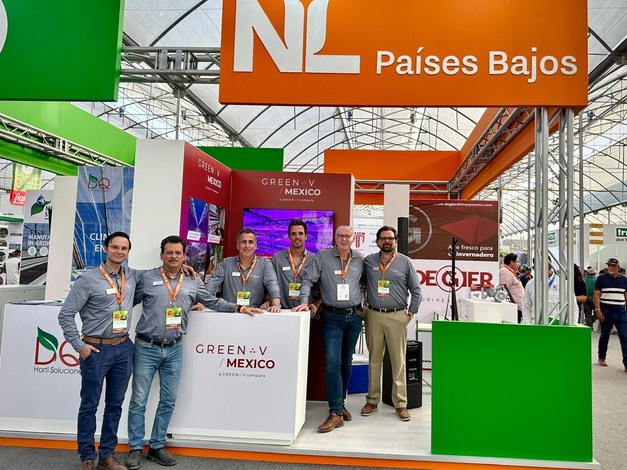
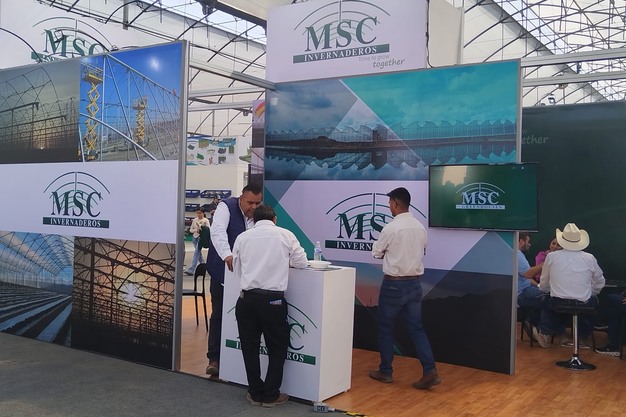

Ing Jesus Lopez Robles, Tecnical Support Americas, Ing Carlos Ruiz Màpula, Director of Bussines Development LATAM & Spain, Ing Jesus Hernandez Ledezma, Demo House Manager, Ing Arturo Gonzalez Delgado, Business Development, Berries, México.
